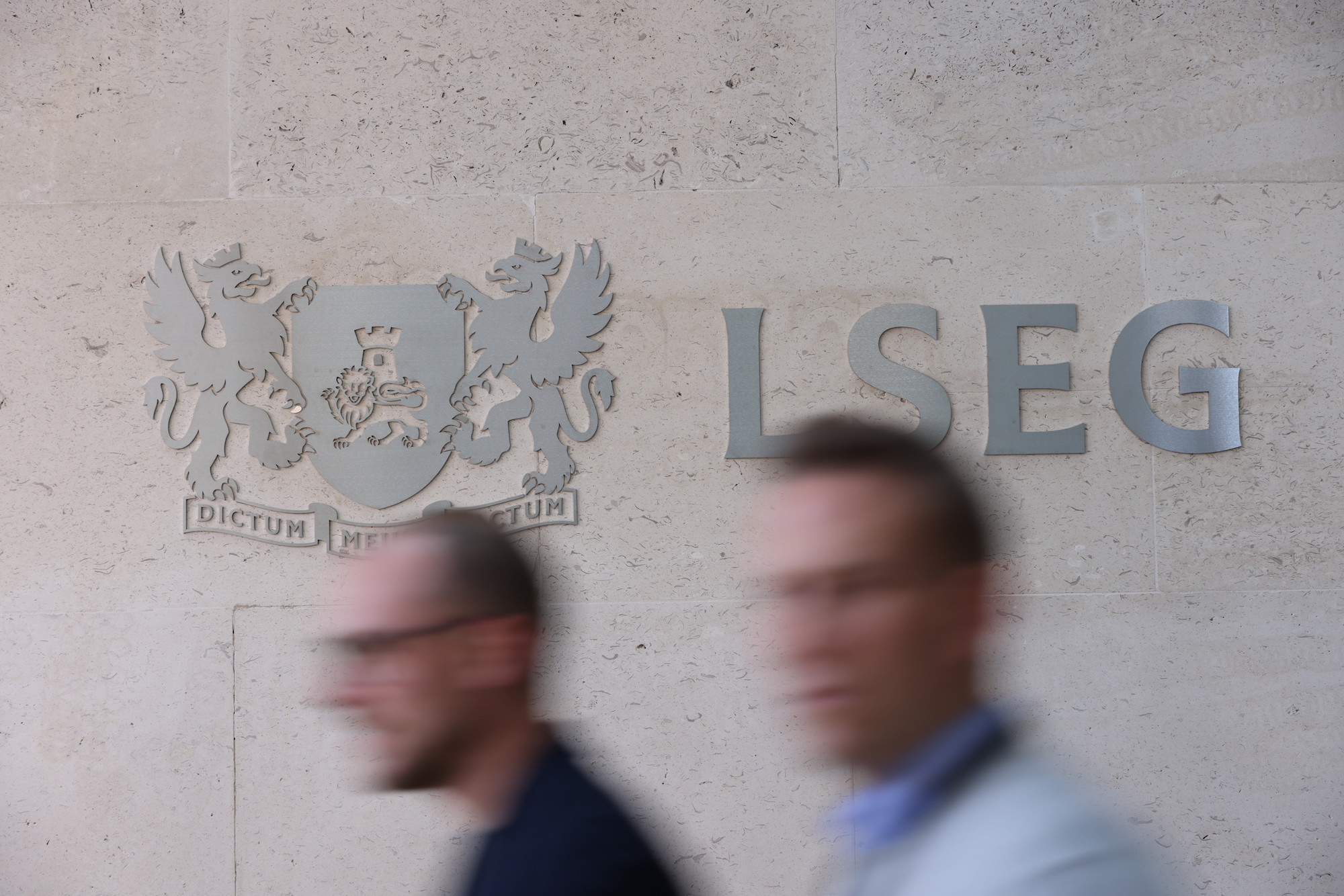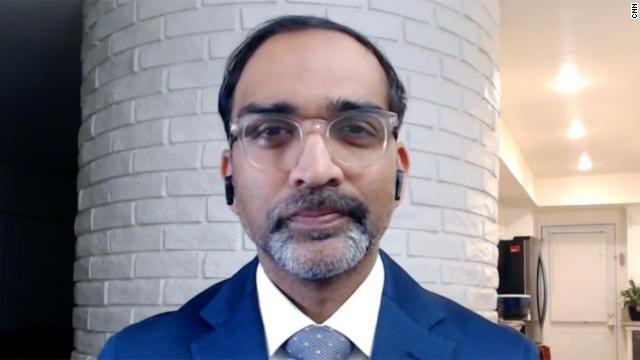Swiss central bank confirms it will provide liquidity to Credit Suisse as requested
From CNN's Robert North
The Swiss National Bank (SNB) bank has confirmed that it will provide liquidity to Credit Suisse, as requested.
The Zurich-based lender had asked the central bank for a $53 billion loan after its shares plunged more than 24% on Wednesday.
Confirming that the liquidity will be provided "against sufficient collateral," the Swiss central bank said, “within the framework of its statutory mandate, the SNB (Swiss National Bank) may provide liquidity to a domestic bank against collateral.”
Battered oil stocks tick up as fear of global banking crisis eases
From CNN's Anna Cooban
Brent crude oil prices ticked up 1% Thursday to hit $74 a barrel as markets cheered an announcement by Credit Suisse that it would accept a 50 billion Swiss Franc ($53.7 billion) loan from Switzerland’s central bank "to pre-emptively strengthen its liquidity.”
But compared with last Friday, Europe’s benchmark oil price is still down 10%.
Investors have been on edge over whether the collapse of Silicon Valley Bank in the United States could spark a banking crisis that would hurt the global economy.
West Texas Intermediate crude, the reference point for US oil prices, rose 0.8% in pre-market trade.
Catch up on the latest as banking fears hit global markets
From CNN staff
 The Credit Suisse Group AG headquarters at night in Zurich on Wednesday. (Pascal Mora/Bloomberg/Getty Images)
The Credit Suisse Group AG headquarters at night in Zurich on Wednesday. (Pascal Mora/Bloomberg/Getty Images)Credit Suisse raised alarm bells after revealing it needs a lifeline to stay afloat — one it has now accepted from the Swiss central bank.
But the Zurich-based lender's struggles sent global markets into a tizzy on Wednesday after acknowledging “material weakness” in its financial reporting, scrapping bonuses for top executives and being denied further investment from its biggest shareholder, the Saudi National Bank.
Here's what you need to know
New deal: Credit Suisse agreed to borrow more than $50 billion from Swiss National Bank after its shares plunged as much as 30% Wednesday in its biggest one-day drop ever. The crash came a month after a historic loss for the bank, and spilled over into other European banking shares, with French and German lenders such as BNP Paribas, Societe Generale, Commerzbank and Deutsche Bank falling Wednesday. Italian, UK and US banks also slumped.
Chinese bank stocks advanced but other Asian stocks sank: Troubles at Credit Suisse are reigniting concerns about even some of the world's biggest financiers, which comes just days after the collapse of Silicon Valley Bank. So here's how markets are doing today:
- Banking stocks in Asia fell on Thursday, dragging the broader markets lower. News that the beleaguered megabank has taken up the Swiss central bank’s offer of financial support in order to stay afloat has only limited the worst of the losses.
- But Chinese banks advanced: Some analysts are calling China a “safe harbor." In Shanghai, the nation’s biggest state-owned lenders all rallied. Bank of China was up 2.7%. Agricultural Bank of China and ICBC both gained 1.6%. China Construction Bank and Bank of Communications added 1.3% and 0.6%, respectively.
- US stock futures ticked up slightly early Thursday morning, suggesting signs of a rebound when markets open for regular trade. Dow futures rose 0.3%. S&P 500 futures pointed up 0.4%, while Nasdaq futures gained 0.5%.
- Europe’s main markets have opened higher after news of the loan to Credit Suisse. In the opening minutes of trade, the UK’s FTSE 100 was up more than 1% and the French CAC 40 was up 1.5%.
Credit Suisse shares also surged: In the opening minutes of trading, Switzerland’s second-largest bank's stock was up more than 30%. On Wednesday the bank plunged more than 24% to a record low after its biggest shareholder said it had no plans to give any more funds to Credit Suisse.
What's the fate of US mortgage rates amid this chaos?
From CNN's Jeanne Sahadi, Michelle Toh, Danielle Wiener-Bronner and Allison Morrow
 Single family homes are seen in a residential neighborhood in Miramar, Florida, on October 27, 2022. (Joe Raedle/Getty Images/FILE)
Single family homes are seen in a residential neighborhood in Miramar, Florida, on October 27, 2022. (Joe Raedle/Getty Images/FILE)The banking meltdown over the past week has left us with more questions than answers. The stunning collapse of two American banks and the loss of investor confidence in Credit Suisse led to wild market swings and put Wall Street on edge.
During CNN’s primetime special, “Bank Bust: Inside the Collapse of SVB,” experts weighed in on how to best understand what’s happening in a rapidly developing and confusing environment for financial institutions.
With all the panic in the market, it gets tougher to purchase a home, particularly if government regulators like the Federal Reserve crack down on banks in the wake of SVB’s collapse. The Fed has also been on a historic rate-hiking regime to keep inflation in check, and most economists expect that to continue.
“I think realistically, from what we’ve heard from the Fed, interest rates likely will continue to rise,” said Vivian Tu, a former JPMorgan trader.
“On top of that, I think a lot of folks are feeling very concerned about, ‘Hey, if I’m saving up for a down payment, is a bank a safe place to put that money?’”
The 30-year fixed-rate mortgage averaged 6.73% in the week ending March 9. A year ago, it was 3.85%.
Freddie Mac is set to release its average weekly mortgage rates at 12 p.m. ET on Thursday.
Credit Suisse shares surge at open after agreeing loan from Swiss central bank
From CNN's Robert North
Shares in Credit Suisse have surged in the opening minutes of trading after it agreed a $53 billion loan from the Swiss central bank.
Switzerland’s second largest bank was up more than 30% in early trade.
On Wednesday the bank plunged more than 24% to a record low after its biggest shareholder said it had no plans to give any more funds to Credit Suisse.
Overnight the Swiss central bank and the Swiss regulator said they were ready to provide financial support to Credit Suisse, and the bank took up the offer, saying the loan was a "decisive action to pre-emptively strengthen its liquidity."
European markets open higher after Credit Suisse takes up Swiss central bank support
From CNN's Robert North
 The London Stock Exchange Group logo outside their offices on Tuesday. (Hollie Adams/Bloomberg/Getty Images/FILE)
The London Stock Exchange Group logo outside their offices on Tuesday. (Hollie Adams/Bloomberg/Getty Images/FILE)Europe’s main markets have opened higher after moves from the Swiss central bank reassured investors over the financial health of Credit Suisse.
In the opening minutes of trade the UK’s FTSE 100 was up more than 1% and the French CAC 40 was up 1.5%.
Switzerland’s second largest bank has agreed to a $53 billion loan from the Swiss central bank, saying it was a "decisive action to pre-emptively strengthen its liquidity."
What is this "moral hazard" thing?
From CNN's Jeanne Sahadi, Michelle Toh, Danielle Wiener-Bronner and Allison Morrow
You may hear economists and market analysts reference “moral hazard” when discussing the past weekend’s rescue of two US banks, Silicon Valley Bank and Signature.
“Moral hazard” is somewhat academic shorthand for the idea that banks (or other entities) will take on more risk if they believe that they will ultimately be bailed out.
For example, some argue that SVB should have been allowed to fail — that the pain of the fallout would outweigh the downsides of customers losing their money and startups going out of business.
Of course, others note that the risk of letting the 16th-largest US bank collapse, and potentially letting its tech industry customers also fail, could have far-reaching and potentially devastating consequences.
Why did SVB get special treatment?
From CNN's Jeanne Sahadi, Michelle Toh, Danielle Wiener-Bronner and Allison Morrow
 An armored truck sits parked in front of the shuttered Silicon Valley Bank headquarters in Santa Clara, California, on March 10. (Justin Sullivan/Getty Images)
An armored truck sits parked in front of the shuttered Silicon Valley Bank headquarters in Santa Clara, California, on March 10. (Justin Sullivan/Getty Images)The banking meltdown over the past week has left us with more questions than answers. The stunning collapse of two American banks and the loss of investor confidence in Credit Suisse led to wild market swings and put Wall Street on edge.
During CNN’s primetime special, “Bank Bust: Inside the Collapse of SVB,” experts weighed in on how to best understand what’s happening in a rapidly developing and confusing environment for financial institutions.
After Silicon Valley Bank failed on Friday, its customers were filled with fear. But by Monday, they could breathe a sigh of relief — the Treasury Department, the Federal Reserve and the Federal Deposit Insurance Corporation had said over the weekend that each customer would be made whole, even beyond the $250,000 insured by the FDIC.
While it was welcome news for account holders, the extraordinary move raised questions for some, who wondered why the FDIC bent its rules for SVB and its customers.
As to why the FDIC made the decision it did? The Federal government didn’t want SVB’s failure to “have a domino effect,” Khalfani-Cox said. “Federal regulators deemed them to be in the category of ‘systemic risk,’ so they granted an exemption.”
Credit Suisse deal doesn't mean the "panic" is over, analyst says
From CNN's Juliana Liu
 Ryan Patel. CNN
Ryan Patel. CNNAsian markets pared some losses on Thursday after Credit Suisse said it would borrow up to 50 billion Swiss Francs ($53.7 billion) from the Swiss National Bank, as it seeks to reassure investors it has the necessary cash to stay afloat.
But Ryan Patel, a senior fellow at the Drucker School of Management at Claremont Graduate University, said the “panic” over the Swiss banking giant isn’t going away anytime soon.
The failure last week of Silicon Valley Bank and Signature, two much smaller regional lenders, shook investor confidence around the world. Some analysts have even compared SVB to Bear Stearns, the first lender to collapse at the start of the 2007-2008 global financial crisis.
However, Patel said regulations imposed on the banking sector after 2008 should be enough to prevent a repeat of the global financial crisis.
.png)
 1 year ago
11
1 year ago
11









 English (US) ·
English (US) ·